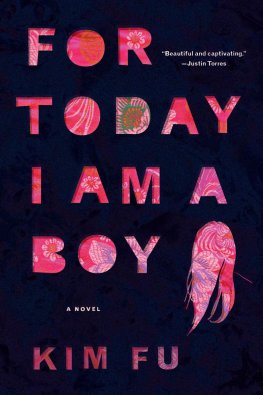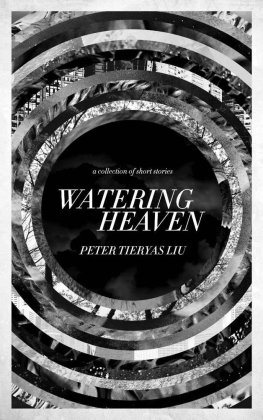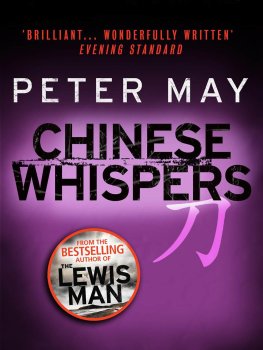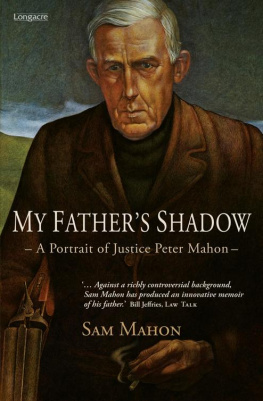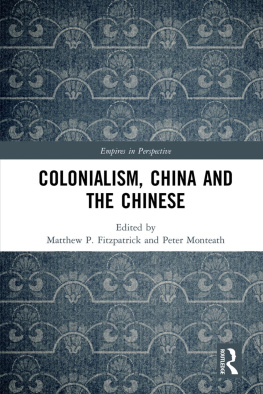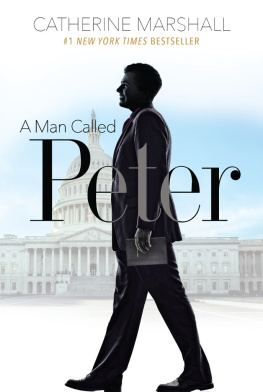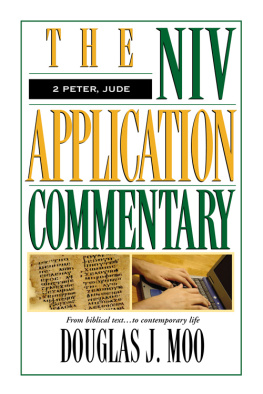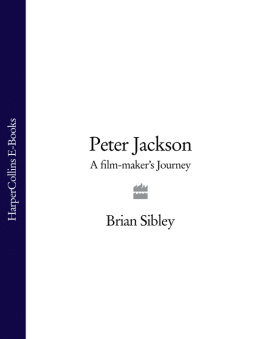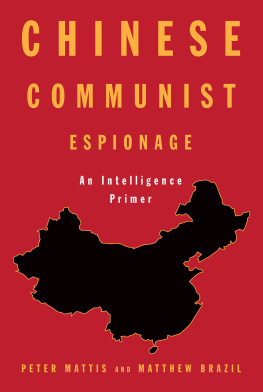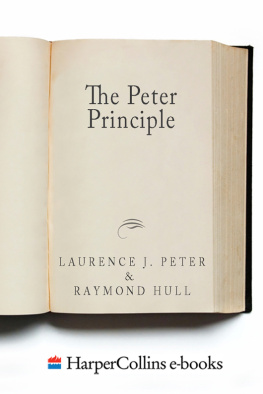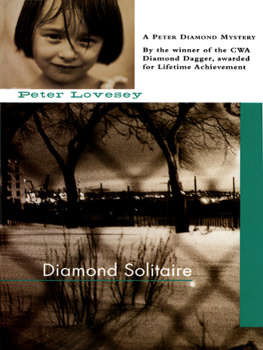Kim Fu
For Today I Am a Boy
One day Ill grow up, Ill be a beautiful woman.
One day Ill grow up, Ill be a beautiful girl.
But for today, I am a child. For today, I am a boy.
ANTONY AND THE JOHNSONS, For Today I Am a Boy
ON THE DAY my sister Adele is born, my mother goes to the butcher. It is January 3, 1969. Her belly, hard as packed snow, bobs outside of her unzipped parka as she walks up to the counter. An enormous sow is laid out in the display case. In her mind, Mother replaces the pigs body with her own: her legs hanging on hooks at the back; her tiny feet encased in rounded, hoof-like leather boots; the shinbone ready to be held in a vise and shaved for charcuterie. Her torso is cut below the breast and lies flat, showing a white cross-section of vertebrae. Her head is intact, eyes clouded yellow and rolled upward. The dried-out edges of her ears let light through. Human ears probably taste similar to pigs ears, she thinks. A glutinous outer layer with crisp cartilage underneath. She could stew them, char them in a skillet, watch her skin blister and pop.
The butcher asks my mother what she wants. A pound of sausages, she says. She feels a stab homesickness, maybe, or dread at the thought of more burned sausages and boiled potatoes. The pain arcs from one side to the other, as though her hipbones are electrodes lighting up the space between. Her legs give out and she lands on her hands and knees.
The butcher calls for an ambulance. He hangs up on the dispatcher while hes still giving instructions and kneels on the floor beside my mother with his rubber apron on. Hes ready.
Mother makes it to the hospital in time, though the butcher tells differently. The story goes that a woman gave birth on the concrete floor of the butchers shop, a child born in pigs blood, the cord cut with a cleaver. He never says who the baby was, and is never contradicted.
Fort Michel, Ontario, had a population of thirty thousand people an awkward, middling size, large enough that you waited in line with strangers at the grocery store and didnt recognize the names in the newspaper obituaries, small enough to count each business: the one butcher, the one Chinese restaurant, the old theater and the new theater, the good bar and the bad bar. Not a small town, by any means, but if every man, woman, and child came out of their homes at the same time, we couldnt have filled a football stadium. The right size for the story of the butcher-shop baby to live on.
My mothers version omits the butcher. It begins with her in the back of an ambulance watching fluid travel down an IV line. The moment it reaches the hollow of her elbow, her entire body goes slack. The world tilts to the left and slides into itself, leaving only black.
Then shes walking. In the middle of the street outside our house. Snow falls, light but insidious, building up fast on the ground. The wind lifts the split in her open-back hospital gown. She unties it, and the string whips her exposed backside.
She starts walking faster. She feels the house is chasing her, accusing her; its shabbiness and empty rooms are an indictment of her character. Three bedrooms crammed onto one floor, growing off the combined kitchen living room like tumors. Gravel in the front, woods beginning quickly in the back. On the rounded hill that leads into the woods, grass grows in tufts, like hair on a balding mans temples. No one who ever lived there had been able to afford to re-sod the lawn. The houses stop shortly after ours in a freshly razed commercial strip, holding promise. Concrete bases in open pits can become anything. (In 1969, there was no way to know that so many of them would languish for decades, the posted architectural paintings growing increasingly outdated and green as the reds bleached out.)
Mother runs barefoot on the asphalt, past the pits, toward the edge of town. Shes almost out. She sees a figure up ahead, through the snow. A man stands in the road, his feet astride the yellow line. She hesitates she fears him more than the house.
Its my father. A short man who stands tall in peoples minds; theyre surprised when they see him against a point of reference, surprised that his chin doesnt reach their shoulders when he comes close. He wears a gray vest over a white shirt, the sleeves rolled up to the elbows. His black hair is gelled back into a ducktail. Mother takes a few steps forward. There is a brutal, magnetic beauty to his features.
A chair appears behind him. He sits. He has always been sitting. He holds a baby in his lap as casually as if it were a briefcase. The babys arms are flung backward. Mother peers into the pursed, demanding shape of the babys mouth. A flash of violence passes through her mind tearing, heat, gore, broken bones and then is lost to her forever.
Mother is in a hospital bed. Mother has always been in a hospital bed. She looks down. She has pulled herself upright by the guardrails, gripping so hard her knuckles are white. Sleep calls her back. My father sits in a chair beside her, holding their first child, my oldest sister, Adele.
Mother wants to ask where the baby came from.
Father misreads the question in her eyes. Well try again for a boy, he says.
Soon afterward, as soon as Mothers broken pelvis has healed, Father begins to whisper in her ear, A boy, a boy, a boy. She pushes him away. He slides down her body and repeats it into her navel, as though calling down a long tunnel. A boy, a boy, a boy! Mother laughs.
He lifts her slip over her head. He mouths the word: the aspirated b and the rounded, open press of the oy. Her eyes roll back. Even in these moments, they dont speak to each other in Cantonese. Father has fixed their first language in the past. Hes decided to outgrow it the way a child decides to outgrow a beloved toy after being mocked.
Nine months later, Helen is born.
Father regards Helen with increasing suspicion as the years go by. Eight years, and still no sons. She has inherited his flat features and coarse hair; Adele has our mothers delicate nose, her fine, weightless hair. He begins to think Helen sealed the spirit door behind her. He begins to think of her as the murderer of his son. Then he remembers hes trying to shed his old superstitions, as a child remembers he doesnt like the stupid toy anyway, and he brings Helen gifts: books, a bone-handled letter opener from Torontos Chinatown. What could an eight-year-old girl do with that? Helen just likes to hold it.
The last time my mother hears Father speak in Cantonese, its a name. A boys name: Juan Chaun. Powerful king. He thought she was sleeping from the way her eyelids twitched like moth wings against the hospital linen. Its a strange name too many harsh sounds, too severe for a newborn. She grabs his pant leg as he walks by carrying their firstborn son.
Make it his middle name, she says.
The birth certificate contains no middle name at all: Peter Huang, born at Fort Michel Hospital, April 11, 1979. She signs it anyway. The name exists, if not legally. They crowned their king.
During these early, blissful days, all my father knows about me is the nub of penis that extends from my torso. He grabs my mother from behind in the middle of a Sunday afternoon. Now that you make boys, lets have a dozen, he says.
My sister Bonnie is their last child.
WE CALLED THE wooden bleachers the Big Steps. They overlooked a pit of dust and gravel, generously called the field. I sat on the Big Steps and watched as two boys in my grade rooted around the edge of the field as though searching for a lost ball.
They emerged, each holding a long strip of wild grass. Ollie, the smaller of the two, didnt have all his permanent teeth yet, so he wouldnt give more than an unnerving, close-mouthed smile. Roger Foher, tall, ugly, and hulking, had ruddy-brown hair and a crooked nose.

